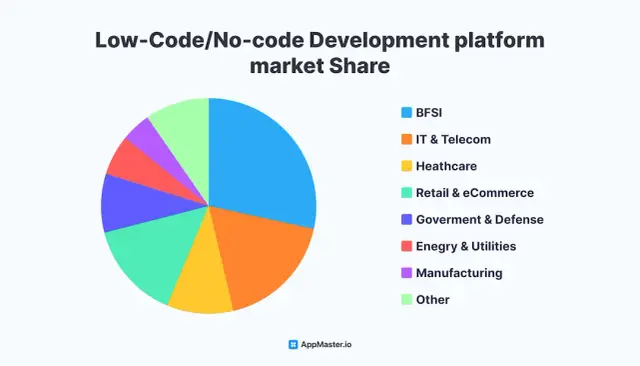Understanding the Cost of Implementing a Custom CRM
Learn the factors affecting the cost of implementing a custom CRM, the benefits it brings to your business, and potential alternatives such as using platform like AppMaster.io for a more cost-effective solution.

What is a Custom CRM?
A custom CRM (Customer Relationship Management) is a software solution specifically designed and tailored to the needs and requirements of a particular business. It helps manage interactions with customers, streamlining sales and marketing processes, providing better customer service, and tracking customer data for better decision-making and analytics.
Unlike ready-made CRM systems or open-source platforms, a custom CRM is built based on a company's unique requirements and business processes. This ensures that the system is highly optimized to fulfill the specific needs of the organization, resulting in a more effective customer relationship management and better complience with the company's goals and objectives.
Factors Affecting the Cost of Implementing a Custom CRM
Implementing a custom CRM solution comes with a cost that can vary depending on numerous factors. Understanding these factors is essential for businesses to make informed decisions and allocate resources effectively. Some of the primary factors affecting the cost of implementing a custom CRM include:
Complexity of the Software
The more complex and feature-rich the CRM, the higher the cost of development and implementation. A CRM tailored to the unique requirements of a business may include custom modules, advanced reporting functionalities, or integration with third-party tools and services to enhance the system's capabilities. The level of customization required will significantly impact the overall cost of implementation.
Development Time
The duration of the development process directly affects the cost of implementing a custom CRM. A longer development timeline usually means higher costs due to increased developer hours and resources. The development time depends on the complexity of the system, the size of the development team, and any additional complexities related to existing systems or data migration.
Integration with Existing Systems
In many cases, integrating a custom CRM with existing systems, such as marketing automation tools, ERP software, or finance applications, is a necessary step. This integration can be complicated and time-consuming and can significantly increase the overall cost of implementing the custom CRM.
Data Migration
Migrating existing customer data from other systems into the custom CRM can be a complex process. This may involve cleaning and formatting data to ensure consistency and compatibility, as well as implementing processes to prevent data loss and maintain data integrity. The cost of data migration largely depends on the size and complexity of the data being transferred.
Training and Support
Implementing a custom CRM requires training for employees to properly use the system and efficiently manage customer relationships. The cost of training and support typically includes preparation of materials, allocation of staff resources for training sessions, and ongoing assistance to resolve any issues or questions that arise during the CRM usage.
Software Licensing and Ongoing Maintenance
Custom CRM solutions may require software licensing and ongoing maintenance fees. These costs can range from minimal to significant, depending on the technologies and platforms used for development and the level of support required for maintaining the system. These fees may also include updates, bug fixes, and occasional system upgrades to ensure the CRM's continued functionality and effectiveness.
Benefits of Implementing a Custom CRM
While the cost of implementing a custom CRM can be significant, there are numerous benefits that businesses stand to gain from investing in a tailored customer relationship management system. Some of these key benefits include:
Increased Efficiency
A custom CRM provides a centralized platform for managing customer interactions and data, resulting in increased efficiency in sales, marketing, and customer support processes. By streamlining these processes, businesses can improve their customer response times, identify new sales opportunities, and enhance overall performance in the competitive marketplace.
Improved Decision-Making
With a custom CRM, businesses can better track customer data, allowing for informed decision-making based on trends, patterns, and insights from the collected information. Advanced reporting capabilities, combined with visual analytics, can greatly enhance a company's ability to make strategic decisions and drive growth.
Better Customer Service
By having a deeper understanding of their customers and their needs, businesses can tailor their customer service experiences to surpass expectations. A custom CRM system allows companies to effectively track customer interactions and preferences, resulting in improved communication and personalized service that fosters lasting relationships and loyalty.

Streamlined Sales and Marketing Processes
A custom CRM system helps businesses align and integrate their sales and marketing processes, enabling better collaboration between teams and ensuring that efforts are targeted and optimized for maximum impact. With improved communication and access to customer data, sales and marketing teams can quickly adapt and fine-tune their strategies to achieve maximum ROI.
Higher Return on Investment (ROI)
Investing in a custom CRM may be costlier initially, but over time, the benefits of a tailored system can lead to a significant return on investment. The efficiencies gained from a custom CRM help to improve productivity and streamline operations, resulting in cost savings, increased revenue, and enhanced customer satisfaction.
Alternatives to a Custom CRM
While custom CRM solutions offer many benefits to businesses, they might not be the right fit for every organization due to the cost and resources needed for implementation. Here are some alternatives to a custom CRM that you can consider depending on your business goals and budget:
- Ready-made CRM systems: There are numerous ready-made CRM solutions available in the market that cater to different industries, company sizes, and budgetary requirements. Some popular ones include Salesforce, HubSpot, and Zoho CRM. These solutions typically come with a predefined set of features and functionalities that can be customized to some extent. Choosing a ready-made CRM can be more cost-effective, faster to implement, and requires less maintenance than a custom CRM solution. However, they might not perfectly match your business requirements.
- Open-source CRM platforms: Open-source CRM solutions like SuiteCRM, Odoo, and EspoCRM offer great flexibility and customization capabilities. Since the source code is open and available for modification, you can develop and incorporate your own features, integrations, and workflows. However, open-source CRM implementation requires considerable technical expertise and may involve significant development time. In addition, ongoing maintenance and support can be a challenge, as it often depends on the availability of developers familiar with the specific open-source CRM system.
- No-code/low-code platforms: No-code and low-code platforms have been gaining popularity in recent years due to their ease of use, rapid application development, and lower overall costs. Platforms like AppMaster.io empower businesses to build their own CRM solutions without the need for extensive programming expertise. By leveraging visual design tools, pre-built templates, and drag-and-drop interfaces, these platforms make it easier to create a tailored CRM solution that matches your specific business requirements while reducing the cost and development time associated with a traditional custom CRM implementation.

Using AppMaster.io for a Cost-Effective CRM Solution
AppMaster.io is a powerful no-code platform that allows businesses to build their own backend, web, and mobile applications, including CRM solutions. This platform offers several features and benefits that make it a viable alternative to implementing a custom CRM solution:
- Visual BP Designers and Drag-and-Drop Interface: AppMaster.io provides visual BP designers and a user-friendly drag-and-drop interface, making it easy to build, test, and deploy your CRM solution. This approach simplifies the development process and ensures a faster, more streamlined implementation compared to traditional custom CRM development.
- Flexible Integration: With its REST API and WSS Endpoints, AppMaster.io can seamlessly integrate with your existing systems and data sources, providing a customizable and adaptable CRM solution that grows alongside your business needs.
- Scalable Infrastructure: AppMaster.io supports a range of technologies and offers the ability to scale your CRM application as your business grows, ensuring you can accommodate increasing numbers of users and workload without any disruptions.
- Reduced Technical Debt: One of the major advantages of using the AppMaster.io platform is the ability to eliminate technical debt by regenerating applications from scratch whenever requirements change. This results in a more adaptable, maintainable, and cost-effective CRM solution over time.
- Multiple Subscription Plans: AppMaster.io offers six subscription plans with varying resources and features, catering to businesses of all sizes and budgets. You can start with the free Learn & Explore plan for initial testing, and scale up to more comprehensive plans like Startup, Business, and Enterprise as your needs evolve.
- Support and Resources: AppMaster.io provides comprehensive support for businesses, including documentation, tutorials, community forums, and strategic partnerships to ensure a seamless end-to-end experience. The platform offers special offers for startups, educational, non-profit, and open-source organizations, making it even more accessible and cost-effective.
Implementing and managing a CRM solution is no small undertaking, and understanding the costs associated with various options is essential for informed decision-making. Although a custom CRM solution can offer clear benefits in terms of flexibility and tailored functionality, it can also be expensive and resource-intensive to develop and maintain. By exploring alternatives like ready-made CRM systems, open-source CRM platforms, and no-code/low-code platforms like AppMaster.io, you can find the right balance between functionality, cost, and effort that best suits your business.
FAQ
A custom CRM (Customer Relationship Management) is a software solution tailored to the specific needs and requirements of a business for managing its interactions with customers, streamlining sales and marketing processes, providing better customer service, and tracking customer data.
Understanding the cost of implementing a custom CRM is vital for businesses as it allows them to make informed decisions, allocate resources effectively, and choose the right solution that best suits their needs and budget.
The cost of a custom CRM implementation takes into account factors such as the complexity of the software, development time, integration with existing systems, data migration, training and support, software licensing, and ongoing maintenance.
A custom CRM offers numerous benefits, like increased efficiency, improved decision-making, better customer service, streamlined sales and marketing processes, and a higher return on investment (ROI) over time.
Yes, businesses can consider alternatives like ready-made CRM systems, open-source CRM platforms, or a no-code/low-code platform like AppMaster.io to create their own CRM solutions at a more affordable cost.
AppMaster.io is a no-code platform that allows businesses to create their own backend, web, and mobile applications, including CRM solutions. By using visual BP designers and drag-and-drop interfaces, building a custom CRM becomes faster and more cost-effective than traditional development.
AppMaster.io offers six subscription plans with various levels of resources and features, ranging from the free Learn & Explore to the Enterprise plan tailored for large-scale projects and tailored requirements.
AppMaster.io provides comprehensive support and resources through their documentation, tutorials, and community forums. Businesses can also take advantage of the platform's partnerships and special offers for startups, educational, non-profit, and open-source organizations.
Yes, AppMaster.io can integrate with various existing systems through its REST API and WSS Endpoints, making it a flexible and customizable solution for implementing a CRM system.





